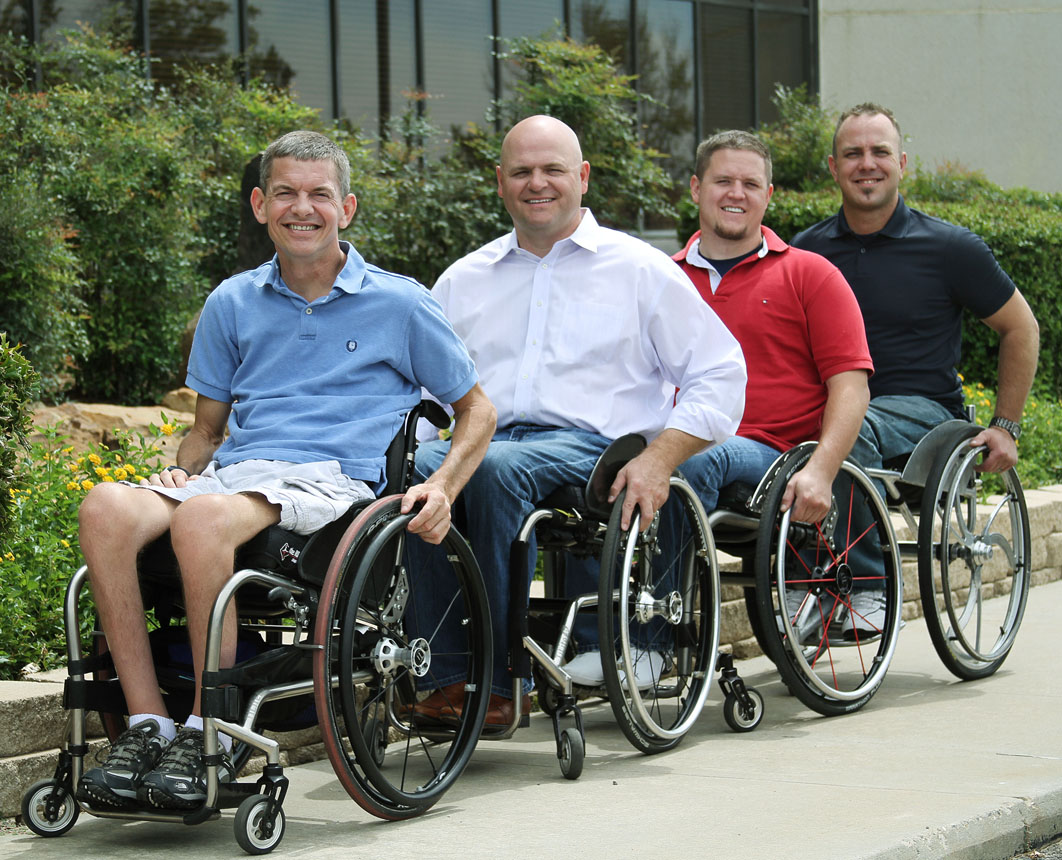All About Spinal Cord Injury
 180 Medical was founded by Todd Brown, after his experiences with living with a spinal cord injury (SCI) after a motocross accident. In addition, we employ people on staff who are also living with spinal cord injuries and other disabilities.
180 Medical was founded by Todd Brown, after his experiences with living with a spinal cord injury (SCI) after a motocross accident. In addition, we employ people on staff who are also living with spinal cord injuries and other disabilities.
As a leading provider of intermittent catheter supplies for nearly 20 years, we pride ourselves on matching customers to the best possible catheters for their unique needs and preference. For example, if you’re living with a spinal cord injury that impacts the dexterity of your limbs and hands, you might want to find out more about catheter types for spinal cord injuries and/or limited hand dexterity.
Resources
Here are a few more helpful resources regarding spinal cord injuries as well as life in a wheelchair.
SCI Connection: A helpful Facebook community where you can ask questions, meet others with SCI, share tips & tricks, and more.
Christopher & Dana Reeve Foundation
Challenged Athletes Foundation (CAF)
Helpful videos for new wheelchair users:

Answers to FAQs About Spinal Cord Injuries
What is a Spinal Cord Injury?
A spinal cord injury, which is also known as SCI, occurs when a traumatic event, such as a car accident, fall, or another type of injury, damages the spinal cord. This results in nerve damage, whether by contusion (bruising of the spinal cord) or compression (pressure on the spinal column). Other types of injuries can include lacerations (severing or tearing of some nerve fibers, such as damage caused by a gunshot wound).
Severe spinal cord injuries often cause paralysis, which means a loss of control over voluntary movement. Plus, people with SCI may experience a loss of sensation below the point of damage. It may also impact autonomic activity, such as breathing or bladder control.
Due to this, many people living with SCI use intermittent urinary catheters to relieve their bladder.
Other symptoms, such as pain, muscle spasms, and sexual dysfunction, may develop as well. Also, people with spinal cord injuries are prone to secondary medical problems, such as bladder infections, respiratory infections, and pressure sores.
What Is the Treatment for Spinal Cord Injuries?
Recent medical advances provide a higher rate of survival as well as better quality of life. However, methods for reducing the extent of a severe SCI or restoring physical function after nerve damage are still limited.
Some treatments may include techniques to relieve cord compression, prompt drug therapy with corticosteroids such as methylprednisolone to minimize cell damage to prevent further injury.
Keep in mind; the road to recovery from a spinal cord injury can be long and difficult. However, you can live a full life after SCI.
Can I Fully Recover After a Spinal Cord Injury?
This varies from person to person. A few factors that may impact potential recovery include the severity of the injury, the vertebrae level at which the injury occurs, and which nerves are damaged.
Most people with spinal cord injuries who are capable of regaining some function will do so between a week to 6 months after their injury. However, the likelihood of spontaneous recovery diminishes after that.